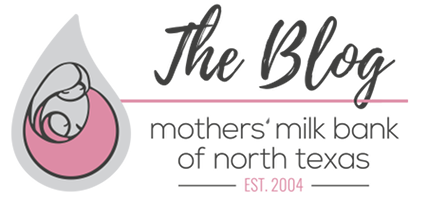We at Mothers' Milk Bank of North Texas have received a number of calls from concerned donors and citizens about the recent study published in Pediatrics concerning microbial contamination in human milk purchased online. Amy Vickers, Executive Director of the Mothers’ Milk Bank of North Texas, which provides pasteurized donor human milk to premature and medically fragile babies, offers this perspective:
“The great interest in the Pediatrics study shows that there is a growing enthusiasm for breastfeeding and the benefits of breastmilk in the United States. In fact, very recently, the Centers for Disease Control announced that our country’s breastfeeding rates are increasing significantly compared to a decade ago. With that enthusiasm comes a great responsibility to steward a valuable resource, human milk.
Many breastfeeding women have a strong, generous desire to help others by sharing their liquid gold with babies who may not otherwise have the benefits of breastmilk. We are fortunate to know thousands of them who have supported the mission of the Mothers’ Milk Bank of North Texas for a decade. With their generosity, we are able to feed the most fragile babies safely and compassionately -- and these are primarily premature infants and those with life-threatening conditions or allergies. We are able to serve these babies because our organization and other nonprofit milk banks are known leaders in educating women and practicing the best methods for expressing, pasteurizing, and dispensing human milk.
Any mother that chooses to selflessly give her milk to another baby should be commended. This study gives moms who choose to share or receive milk independent of a milk bank information to help then analyze the risks vs. the benefits. Our hope is that women who are expressing and storing their milk will thoughtfully consider donating to a local, nonprofit milk bank and help us feed the tiniest, most fragile babies -- because their need is so great and the return is priceless.”
For an additional perspective, please read this blog post from Alison Stuebe, MD, MSc of the Academy of Breastfeeding Medicine.
